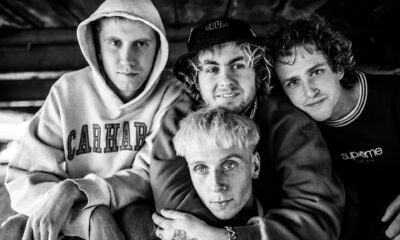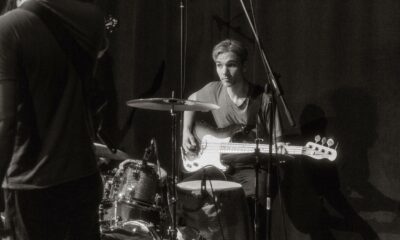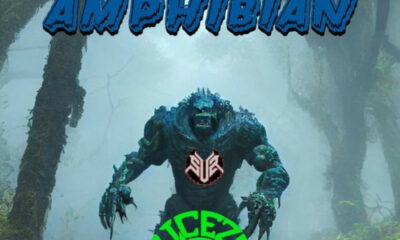Interviews
iDKHOW Frontman DALLON WEEKES Chats About the Band’s ‘1981 Extended Play,’ Uncompromising Music, and Doing it on Your Own Terms [w/ Audio]
With their 1981 Extended Play EP flying high since its November release via Fearless Records, the two-piece I Don’t Know How You Found Me (iDKHOW) are starting to soar. We spoke to frontman Dallon Weekes about the EP, the recording process, keeping up with the times, and more.

Dallon Weekes and Ryan Seaman are I Don’t Know How You Found Me (stylised as iDKHOW), a two-piece band with a handful of catchy singles and a retro 1980s approach to their music and imagery that is being embraced across the globe as a musical breath of fresh air.
The iDKHOW backstory reads like the band, and their musical output, was overlooked in the early 1980s but have recently been unearthed and now released in an era that may finally be ready to accept them. “It began in the days of excess when video killed the radio star, and a new cultural frontier beckoned. A time punctuated by the whirring of videotapes capturing endless hours of Night Flight and Top of the Pops; of mixtapes passed back and forth between sweethearts, lovingly collected and assembled by passionate pop diehards. The world wasn’t ready for iDKHOW back then. They’d better get ready right now.”
With an EP entitled 1981 (grab it here via iTunes) released late last year and a single from that record entitled “Choke” steadily garnering fans, iDKHOW are set to become one of the true viral success stories of 2019. The EP’s five songs are all excellent, and the promise of a full-length in the coming year of similar-sounding material has music fans swooning in anticipation over Weekes and Seaman’s addictive new musical project.
Following a recent, rad exclusive wherein the band shared a track-by-track breakdown of the above-mentioned EP, Dallon Weekes took some time to talk with PureGrainAudio a few weeks ago about iDKHOW, touching on numerous topics around his approach to music, and his manifesto for keeping things fresh as he and Seaman continue to explore musical possibilities for the years to come.
First off, congratulations on the new EP. It’s doing really well.
Dallon Weekes: Thank you very much.
If you’re looking for a throwback to that early MTV vibe, then check out this IDKHOW’s music video for “Do It All The Time.”
I’m curious as to what it is that you love about the 1980s and especially 1980s sounding music.
Weekes: Well, musically speaking, I’ve been really enamored with like late ‘70s early ‘80s stuff for a really long time. I think that that particular subset of influences just took a big step forward for this EP and for what we’ve been doing for iDKHOW. I grew up in the early ‘80s, and a lot of what we’ve been doing at least aesthetically is trying to just recreate that feeling what it was like to discover a band in that time.
That’s interesting because back then there’d be no Internet no Instagram, no socials. It was all done by tape trading and word of mouth through friends.
Weekes: Yeah exactly. I was born around when MTV debuted. So I grew up with that being a presence and I discovered a lot of my favorite bands just when I happened to be at a place that had cable. Because we didn’t have that growing up. So I’d sneak off and catch a video by The Cure or The Smiths or something. So I found a lot of my favorite stuff out that way.
Nice. Did you ever consider recording any of this material in a retro fashion? Like doing it direct to tape?
Weekes: Well, we did. On a couple of songs, in particular, one song was not included on the EP. It’ll see the light of day at some point but there’s a producer named Jason Hill who recorded “Social Climb.” And that’s my favorite song on the EP. I think it’s the one that turned out to be the most sonically interesting because we used a lot of vintage equipment and reel to reel tape and stuff. I think some modern technology did find its way in there eventually, but we tried to mess with as much of that vintage stuff as possible. It ended up sounding really great, I think.
How far did you sort of plan this back story? Did you and Ryan come up with the idea of iDKHow being sort of like a forgotten band that has resurged and now these songs are starting to come around? Or was that all you?
Weekes: Well yeah, I came up with it as I was making these songs and recordings happen. I would take breaks and fall into these weird YouTube holes of watching old performances from Top of the Pops and The Old Grey Whistle Test. And in particular, one cable access show from I think New York or New Jersey in the early ‘80s called Stairway to Stardom. So I was watching all these old clips of old TV shows like this, and I really wanted this new project I was working on to make an appearance on these things.
But since that wasn’t possible, I thought, you know, presenting it as a long forgotten act would be interesting and entertaining because there’s plenty of bands that I’ve discovered with the help of the Internet that are now my favorite bands. Like Sparks is a huge influence on what I do. And I’ve only learned about them within the last maybe five years or so. And that’s thanks to the Internet.
Check out the artwork for the 1981 Extended Play EP, which dropped on November 9th, 2018.
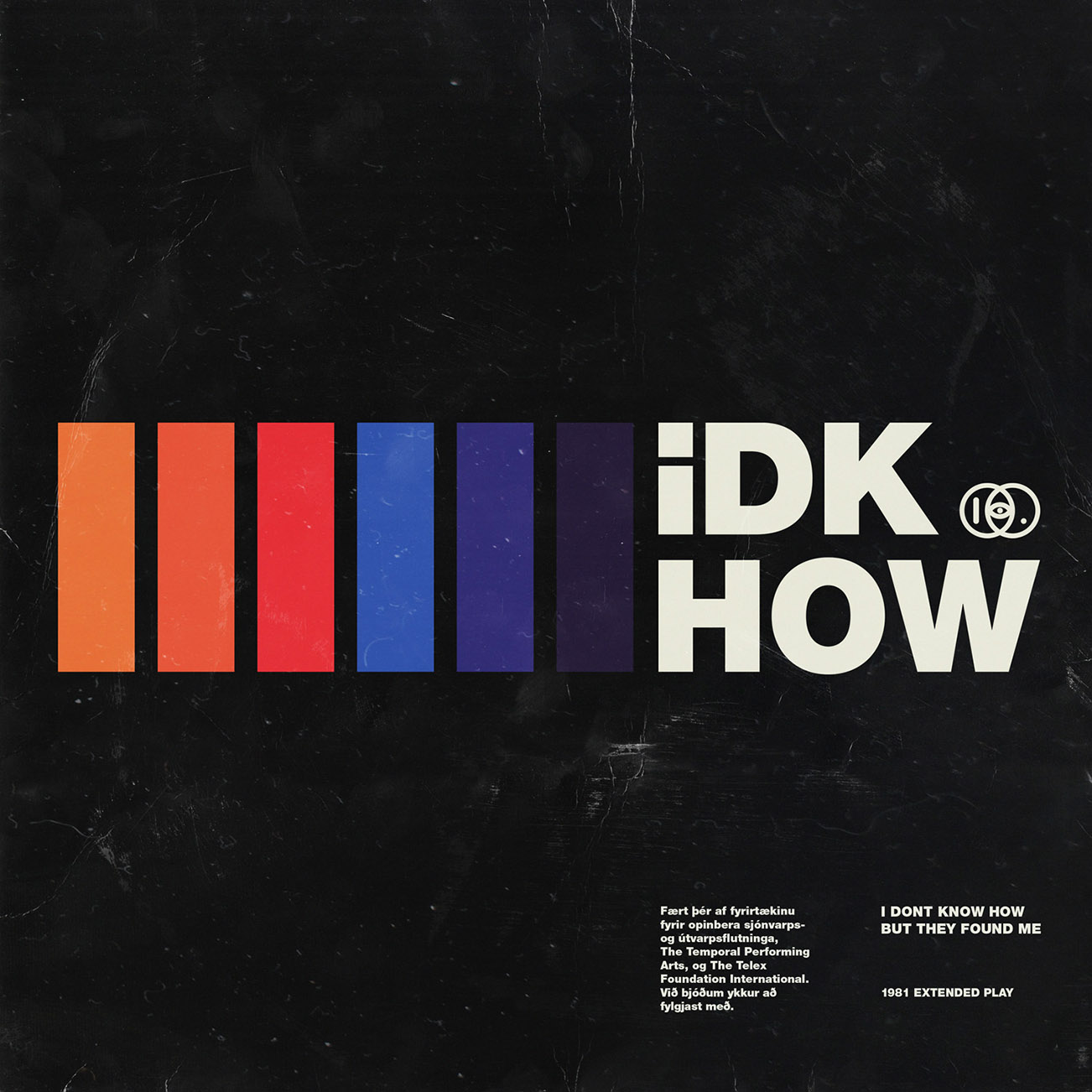
Do you feel like that era and the connection that young people had to music translates on this generation now? I feel like music doesn’t mean as much to the 15 to 25-year-old generation like it did in the ‘70s and ‘80s.
Weekes: That’s the thing. I agree with you, and I don’t know that anything means as much anymore. Because it’s all so instant. When I was a kid and you discovered a band like I mentioned where you happened to see a band on MTV, if you were lucky enough to just catch that video you probably wouldn’t see it again for another two weeks if you happen to come across it again. When you found something that clicked with you, you had to make an effort to go up and find that thing.
So it meant something more to you because you put in that footwork and went to the record store and passed those tapes around. You had to put effort into this thing that you like. So I think that because of that things meant more to you. That doesn’t really exist anymore. Everything is so instantaneous that I think it’s harder for those things to resonate with people.
What are you and Ryan planning for the rest of 2019 and 2020? Are you feeling any pressure to put a full-length album out?
Weekes: Well, we’re doing a headlining tour starting on the 25th. A U.S. tour with a great band called Superet. I’m really excited about that. But in the meantime, I’ve been spending every spare moment trying to assemble ideas for a full-length record.
Do you have material that’s just sort of back-burnered or are you writing as you move along?
Weekes: Well, we’ve got some songs that are ready to go. I tend not to spend time working on any music unless I really feel passionate about it. So any back-burner ideas tend to get forgotten about. But we’ve got a collection of songs that are just waiting to be recorded properly and I assemble most of this stuff at my kitchen table. I’ve only been learning how to record on my own in the past maybe two years. A lot of the EP that you’ve heard, I think maybe 70 to 80 percent of it was recorded in my kitchen. And then eventually we had to take those files to someone who knew what they were doing and finish them up in the proper way.
Here’s the music video for that awesome new track “Choke,” we were just talking about.
Then the tunes that are on the EP, did you record them all at once or were they all done one at a time in different studios with different people mastering?
Weekes: Not even one at a time really because when we started this thing it was entirely DIY and there was a non-existent budget. So learning how to record on my own became a necessity. But, like I said, whenever we would take this stuff to the studios to get finished up it would always be on someone else’s goodwill. You know, a free 20 minutes here at this friend’s studio. A free hour there at someone else’s place. So, for example, a song like “Choke” was put together I think in five different locations over the course of maybe six weeks. Just to keep the costs down. But it was also the easiest song to write, so it was really frustrating getting that song to come to fruition on record when it had been written in such a short time.
And “Choke” is doing surprisingly well on alternative radio. It’s charted, and it appears to still be on a trajectory upwards, which is pretty wild.
Weekes: It’s been really surprising and really validating to have that stress and that hard work sort of pay off.
I hate using the word easy when I’m talking to musicians because nothing about writing music is particularly easy. But from the outside looking in it just appears like this is very organic and happening very easily.
Weekes: Well I’m glad we make it look that way. Because it’s certainly a lot more work than our previous bands. But at the same time, it’s a lot more rewarding as well to be able to put your time and effort into something that’s not filtered through anybody else. Not any other entities or any other writers, you know?
Now, you had mentioned that you do have a headlining tour coming up. Did that require any rethinking for you and Ryan? Do you have to flesh out extra material? Are you doing some cover versions? Are you bringing any extra visuals?
Weekes: We never want to do the same show twice, even when we’re on tour. We want every night to be different. But for this upcoming tour we’ve got a couple of new numbers that we’re adding to the set. We’re switching things around. You know Ryan and I used to be in a band years ago called The Brobecks. And I think this new band that we have will always be haunted by the ghost of The Brobecks. So every once in a while we will reach back into that catalog and play an old song here and there.
Ladies and Gentlemen, Mr. Dallon Weekes.
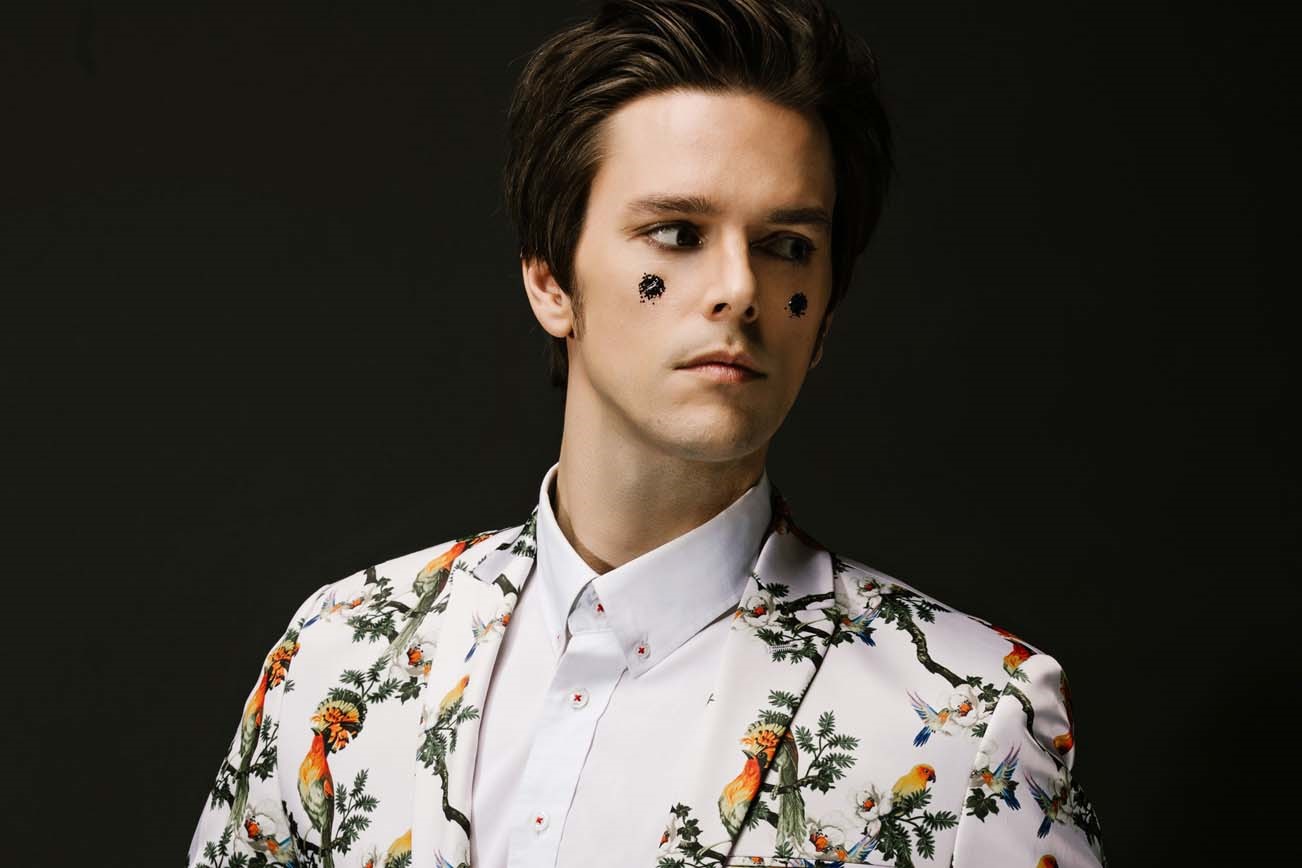
Do you round out your act with extra musicians or is it just the two of you?
Weekes: For now, it’s just the two of us. But adding more people is something that we’ve always wanted to do. Especially because improv is something really close to both of our hearts. That can be kind of a challenge to do when you use backing tracks to bulk up your stage show. But any moment that we have a chance to sort of wander around an idea and extend it a bit, we like to do that stuff. But it would be a lot easier to undertake stuff like that with more musicians. So that’s something we’re looking forward to being able to do once it becomes financially reasonable to do.
Is there a story behind how you wound up at Fearless Records or did you just sort of sign with them?
Weekes: Oh no. It took a while finding a home for this project and this stuff. There’s a good handful of record companies that came our way. But in the end, it was Fearless that offered us 100 percent creative control over everything that we do. Which is really the heart of why we started this thing by not having to filter out our ideas through anybody else. So that’s huge.
How far do you plan on pushing the retro 1980s theme? Is it going to be everywhere? Merchandise? Album designs? Will you make cassette tapes?
Weekes: Cassette tapes… that’s interesting. It’s something that we’ve toyed with. But, you know, it’s a loose concept, and it’s meant to be something that’s fun. So if it ever starts getting played out and tired, we want to avoid that for sure. But the way that it is right now we have ideas to sort of develop and evolve and push the narrative and the story and change it. Because, like I said, we never want to have to do the same thing twice.
Exactly. I find it interesting because I’m going to shows and I’m seeing cassette tapes on merchandise tables.
Weekes: Yeah it’s definitely a thing. I love seeing it though.
Listen to “Social Climb” which also appears on the 1981 EP.
You decided to leave “Modern Day Cain” and “Nobody Likes The Opening Band” off of your 1981 EP. Was there a reason for that?
Weekes: Well, you know, we wanted to give fans a couple of new songs and instead of just putting out a record full of stuff that they’ve already heard which would have been easy to do. But I’m thinking as a fan. I definitely am (a fan) and I consider myself first and foremost a fan of music, and I know what I would want from an artist that I was a fan of. And new music is always a top priority. If you’re a creative person, I think you want to get your stuff out there, so that was really why. I think that stuff will end up being on the LP though.
Are you yourself a purchaser of physical items? Do you buy vinyl? Do you buy CDs still?
Weekes: You know I have sort of fallen out of the habit over the last decade or so but people have been getting me back on the vinyl train lately giving me records and stuff while we’re on the road. I bring it home with me, and we’ve recently got a new record player, so we’re getting back into it. I haven’t ponied up myself and tracked many new records down for a while. I’m a streaming guy.
Records require an investment of time. You’ve got to sit down and listen to them and flip them over and commit to them. And it’s curious that they’re resurging because in this modern time people just want easy access on their phone. Digital, crunched, artifacted files, right?
Weekes: Yeah, it’s hard to keep people’s attention even for a three-minute song. They listen to halfway and then skip to the next one even if they really like it. It’s a bizarre thing for me to see.
Do you and Ryan have an idea for where you hope iDKHow will go as a band? Do you have it like a loose vision or a mission statement?
Weekes: Well, we want to be able to have fun and to be able to take care of ourselves and my family, I should say my family, Ryan doesn’t have one. But, yeah, that’s the priority for me to be able to take care of my family doing what I love.
“Nobody Likes The Opening Band,” right? Well, you may at least enjoy this song and music video.
And what’s your ideal touring package for your band at the moment? Are there a few bands that you think would be suited to your sound and approach to touring?
Weekes: Well, yeah, there’s lots of bands that I really like that I think would be a lot of fun to tour with. Bands like Miniature Tigers, or there’s a great British band from Brighton called Fur. There’s a lot of really cool stuff. White Reaper. That’s a great band too.
Oh man, such a great band. I like those guys.
Weekes: They’re so good.
Tell me how it is as an artist trying to keep up with changing times. Do you dwell on that? I mean it sounds like you’re old enough that you’ve certainly seen a shift in the music industry.
Weekes: Sure. And yes, I definitely have. My method is just to ignore it completely and do what I want.
I think that’s a good method.
Weekes: Well it’s something that people don’t really do anymore. There’s a great interview I think it was Noel Gallagher from Oasis. I don’t know how old the interview is, but he’s talking about how the music business used to work the way that the fashion business does now. Where these designers and these artists just make what they want and then people decide if they want it or not. And that’s the way that it used to work. And nowadays people focus and group stuff, and then they filter through their radio reps and dilute their ideas, and it’s so counterproductive to me.
I think you can certainly sell a lot of records that way and those people know what they’re doing to a certain extent. But I would rather love what I’m doing rather than sell a million copies of something.
A shot of the band on-stage, before a totally stoked crowd.

Yeah true. Can you tell me a concert that you’ve seen that that blew you away?
Weekes: Well the first one that came to mind was my favorite concert I’ve ever seen, and that’s probably Elvis Costello in I think 2009 or so. It’s been a while since that show, but probably my favourite concert I’ve ever seen is him touring with his band The Imposters. And at one particular point in the set, he sort of dismisses the band and picks up an acoustic guitar and starts walking the aisles at the venue, no microphone no anything, just singing at the top of his lungs to this room full of 2,000 people or so. And it was so so inspiring and impressive. Probably my favorite concert moment I’ve ever seen.
Nice. Can you pick an album that you play when you’re in a shitty mood? Something that is guaranteed to cheer you up?
Weekes: Oh there’s a few of them. One was Elvis Costello This Year’s Model, probably my favorite record of all-time. I always end up going back to that one. Weezer’s Pinkerton is another favourite. Yeah, there are some really great records by Louis XIV, that’s what I always end up going back to. Or there’s a great band from Oklahoma. I don’t think they’re really a band anymore, but the Starlight Mints. They have a record called The Dream That Stuff Was Made Of, one of my favourite records ever. It’s so good.
Would you describe yourself as someone who’s currently writing lyrics for music or music for lyrics?
Weekes: Oh man it happens both ways. There’s no real set method that I have. I have all these files full of random lyrics, and sometimes I have files just full of random music, and I end up pairing one with the other. But sometimes one comes first and sometimes it’s the other.
-

 Music6 days ago
Music6 days agoTake That (w/ Olly Murs) Kick Off Four-Night Leeds Stint with Hit-Laden Spectacular [Photos]
-

 Alternative/Rock3 hours ago
Alternative/Rock3 hours agoThe V13 Fix #011 w/ Microwave, Full Of Hell, Cold Years and more
-

 Alternative/Rock1 week ago
Alternative/Rock1 week agoThe V13 Fix #010 w/ High on Fire, NOFX, My Dying Bride and more
-

 Alternative/Rock2 weeks ago
Alternative/Rock2 weeks agoA Rejuvenated Dream State are ‘Still Dreaming’ as They Bounce Into Manchester YES [Photos]
-

 Features6 days ago
Features6 days agoTour Diary: Gen & The Degenerates Party Their Way Across America
-

 Culture1 week ago
Culture1 week agoDan Carter & George Miller Chat Foodinati Live, Heavy Metal Charities and Pre-Gig Meals
-

 Music1 week ago
Music1 week agoReclusive Producer Stumbleine Premieres Beat-Driven New Single “Cinderhaze”
-
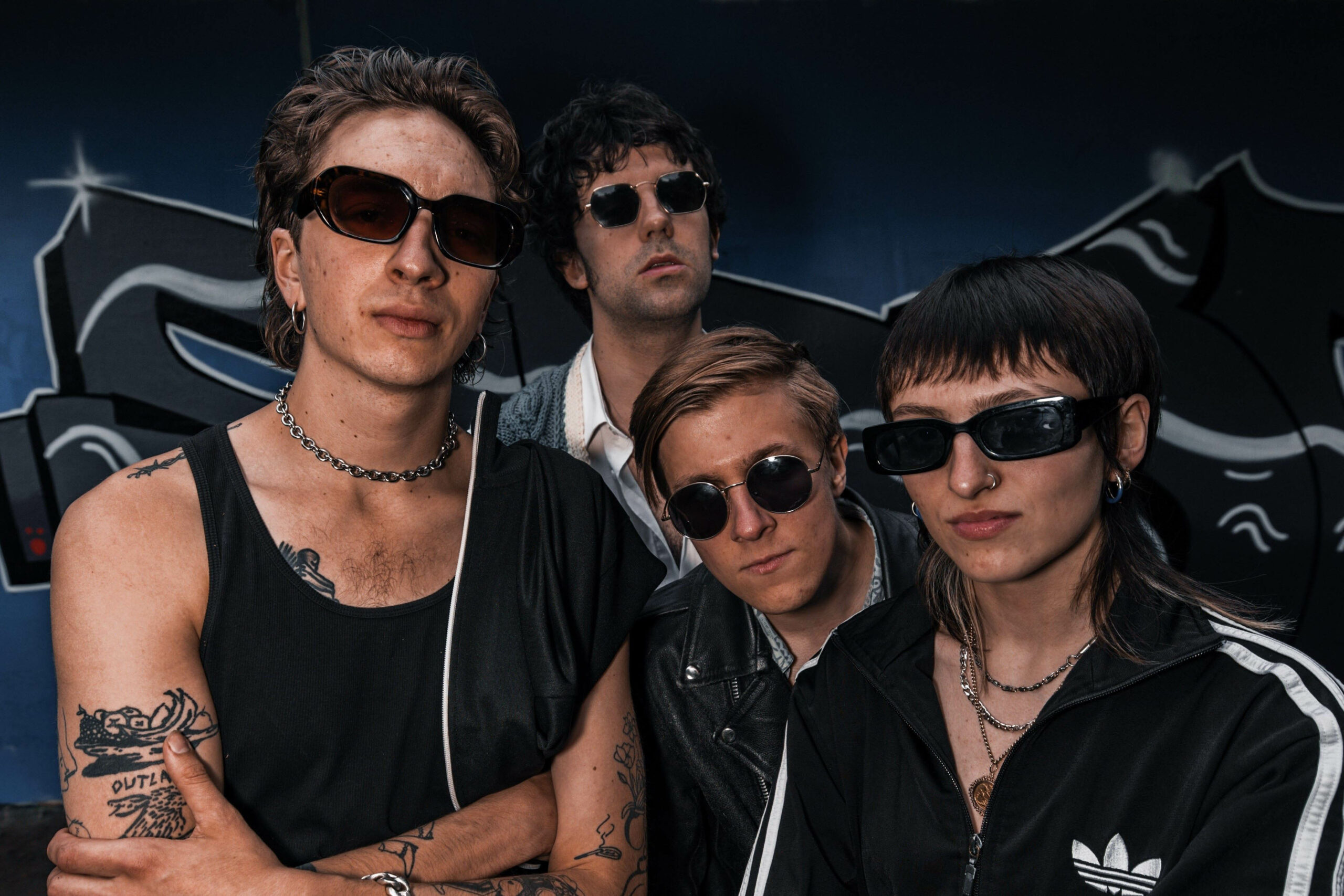
 Indie3 hours ago
Indie3 hours agoDeadset Premiere Music Video for Addiction-Inspired “Heavy Eyes” Single



